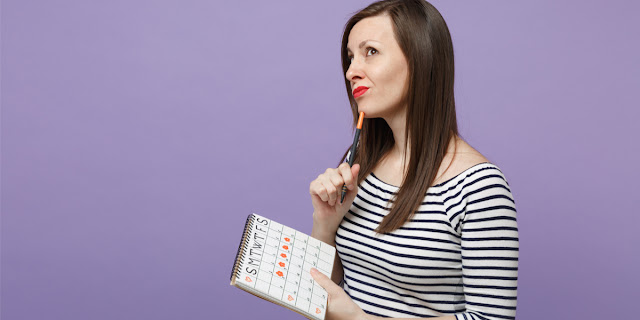Period Delay: Can it Cause Problems with Your Sex Life?

Period Delay: Can it Cause Problems with Your Sex Life?
The pregnancy test came back negative, but you
haven't had your period yet. What happens? There are many reasons why you may
not have one of your periods or even stop having them. If you have trouble with
irregular periods, you can purchase Norethisterone Tablets and Period Delay tablets online in the UK.
If you cannot rule out pregnancy after a
negative test result, you may have a late or missed period due to:
● Stress: This can be one of the
main reasons for a late or missed period. Take time to relax, get regular
exercise, or even do some stress-management breathing exercises.
● Sudden weight loss: This can cause
periods to stop, as severe calorie restriction or eating disorders can stop the
production of hormones necessary for ovulation.
● Excess exercise: Excess exercise
and vigorous physical activity can cause hormonal imbalances.
● Hyperthyroidism: Thyroid disease
can interfere with the menstrual cycle.
● Long-term medical conditions: Some
conditions such as heart disease or diabetes can cause late or irregular
periods.
● Being overweight or obese: Being
overweight can cause the body to produce too much estrogen, which can affect
the menstrual cycle.
● Polycystic Ovarian Syndrome
(PCOS): Polycystic ovaries have many immature sacs in which eggs develop —
which they often cannot release — and therefore ovulation does not occur. PCOS
affects one in ten women in the UK and is responsible for one in three cases of
irregular periods.
● Reaching menopause or
perimenopause: As you reach menopause, which usually occurs between the ages of
45 and 55, your estrogen levels begin to drop and you may ovulate less often.
Some women, about 1 in 100, experience premature menopause, which occurs before
the age of 40. If you haven't had your period for three months and you are
under 45, see your doctor.
● Breastfeeding: If you are
breastfeeding, you may have irregular periods or a missed period. You may not
even have your period until you stop breastfeeding, but that doesn't mean
you're not fertile. So be sure to use birth control if you don't want to get
pregnant again.
● Birth control: Some types of birth
control such as progesterone-only birth control pills, birth control injection,
or the intrauterine system (IUS) can cause periods to stop completely.
Now,
how does it affect your sex life?
Stress in women can cause hormonal changes,
alterations in the menstrual cycle, problems in sexual desire or amenorrhea -
lack or disappearance of menstruation - which, together with low levels of
estrogen, can cause bone decalcification and atrophy of the genital organs.
Doctors explain that many women "are
exposed daily to high cross demands, both at work and at home and with their
children, which generates high levels of chronic stress." In this way, by
maintaining high levels of stress hormones throughout the day, physical
symptoms such as headaches, contractures, intestinal or heart problems, even a
drop in the immune system can appear.
It is the chronic stress syndrome, with
psychological symptoms such as anguish, frustration, irritability, anxiety,
depression or chronic fatigue and which can affect the ability to have more
children since the stressed woman "is not in optimal psychological or
physical conditions, to be a mother again."
To enjoy a normal and pleasant sex life,
various factors must influence, such as physical health, emotional tranquillity
and that all the senses are focused on the intimate moment. However, the high
degrees of worry and anxiety caused by tension affects a woman's intimacy,
since they interfere with the mechanisms of her normal sexual response.
"In a physical way it is presented in
various ways, highlighting vaginal lubrication", says the doctor, who has
influenced the fact that severe stress alters the female reproductive system,
since the absence of menstruation that, on many occasions, happens women who
are subjected to situations of great anxiety.



Comments
Post a Comment